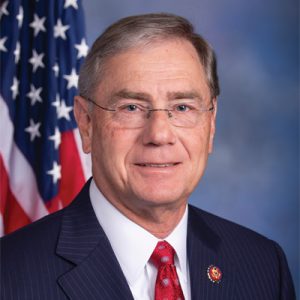As 2021 was coming to an end, you could feel the excitement of Christmas approaching. Many of us were looking forward to spending time with our families, and our kids (or grandkids in my case) were excited to see what surprises Santa had in store for them. My wife Jackie always ensures our grandkids make out okay, and I hope you and your families were treated well at Christmas too.
It turns out holiday surprises weren’t only being cooked up at the North Pole. In D.C., newly appointed regulators, who prefer getting drunk on power over eggnog, decided nothing says surprise like an unethical coup and trampling of 100 years of precedent. Right before Christmas, with the help of Martin Gruenburg — who was an absolutely horrible Chairman of the FDIC under President Obama and is still a member of the board — CFPB Director Rohit Chopra attempted to usurp authority from the FDIC and dictate the policies of both agencies. Mr. Chopra tried to completely circumvent the FDIC Chairman and Board of Directors, and announced the Bureau would be launching a review of bank merger policy without the consent of Chairman McWilliams. The FDIC promptly denounced this unprecedented statement in a press release.
This blatant disregard for another agency’s authority and overstep makes me fearful for what else is to come from the CFPB under Mr. Chopra’s heavy-handed leadership. It is a very sad day when an independent agency undergoes unchecked partisan and political attacks. And unfortunately, Chairman Jelena McWilliams has since announced her resignation from the FDIC, putting it even further at risk of being controlled by a person who was neither nominated nor Senate-approved. Raised under a socialist regime, Ms. McWilliams has an especially deep appreciation for capitalism, and economic freedom and these ideals were constantly at the forefront of her leadership at FDIC. Her departure is a major loss for our country and American’s economic system, and I highly doubt this Administration has the desire or political will to appoint another person who defends democracy and economic liberty as fiercely as Ms. McWilliams.
In response to this stunt from Director Chopra and Gruenberg, I have introduced a bill to provide more accountability and transparency at the agency. The FDIC Board Accountability Act would remove the CFPB Director from the FDIC Board of Directors and put term limits in place for FDIC Board of Directors. Mr. Gruenberg’s seemingly unending term on the board and desperation to regain power at the FDIC was instrumental in Director Chopra’s failed power grab. It also perfectly illustrated how brazen certain people will become when they can sit in a position for a decade after Senate confirmation.
I don’t have to tell bankers how much power the CFPB director has. Dodd-Frank granted the position unprecedented control over the American financial system. The last thing the director needs is a board seat at another agency. The FDIC’s mission is far too important to be tainted by the crusades of a separate agency that I believe was designed by President Obama and Elizabeth Warren to carry out political retribution under the guise of “consumer protection.” In the absence of replacing the CFPB director with a five-person board, which is long overdue, the least that should be done is prevent the director from interfering with safety and soundness requirements like liquidity and capital for America’s financial institutions. That’s exactly what my new bill would do. It removes the CFPB director from the FDIC Board and eliminates never-ending board tenures for forgotten regulators like Martin Gruenberg.
Politics will never be completely removed from regulation, no matter who is in power. Positions appointed by the president and confirmed by the senate will naturally be affected by the party in control of the process.
Politics will never be completely removed from regulation, no matter who is in power. Positions appointed by the president and confirmed by the senate will naturally be affected by the party in control of the process. But we can and should create a balance so no matter who sits in the White House or Congress, the agencies’ focus remains on the health and safety of the financial system. After all, a safe, efficient financial system is the only true way to ensure financial protection for U.S. consumers.









